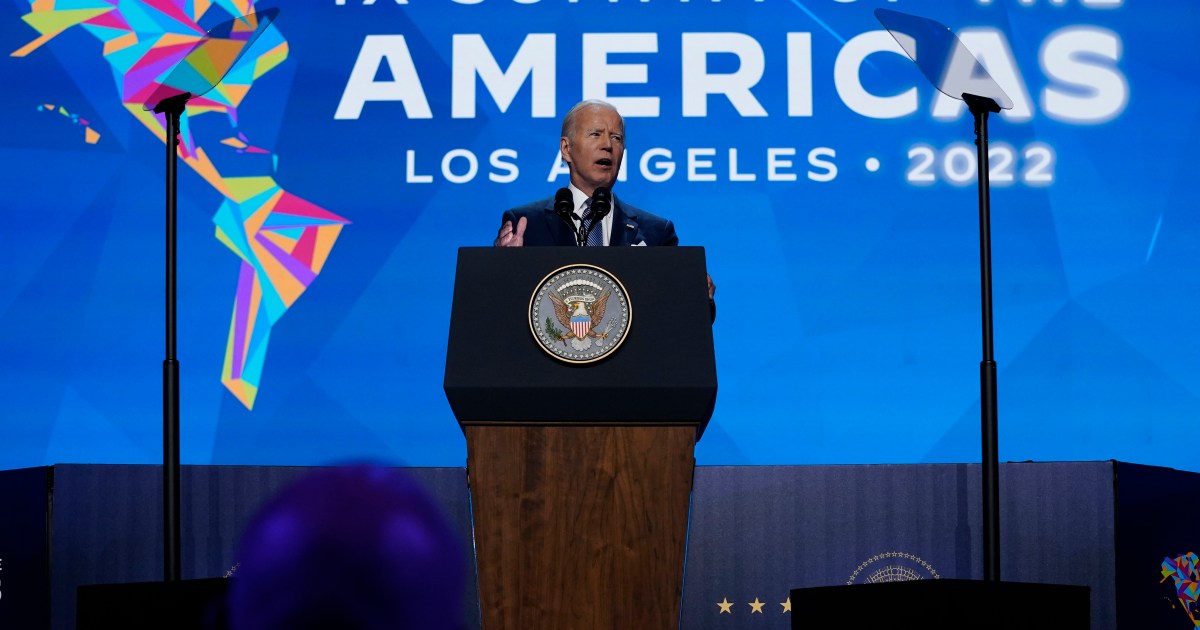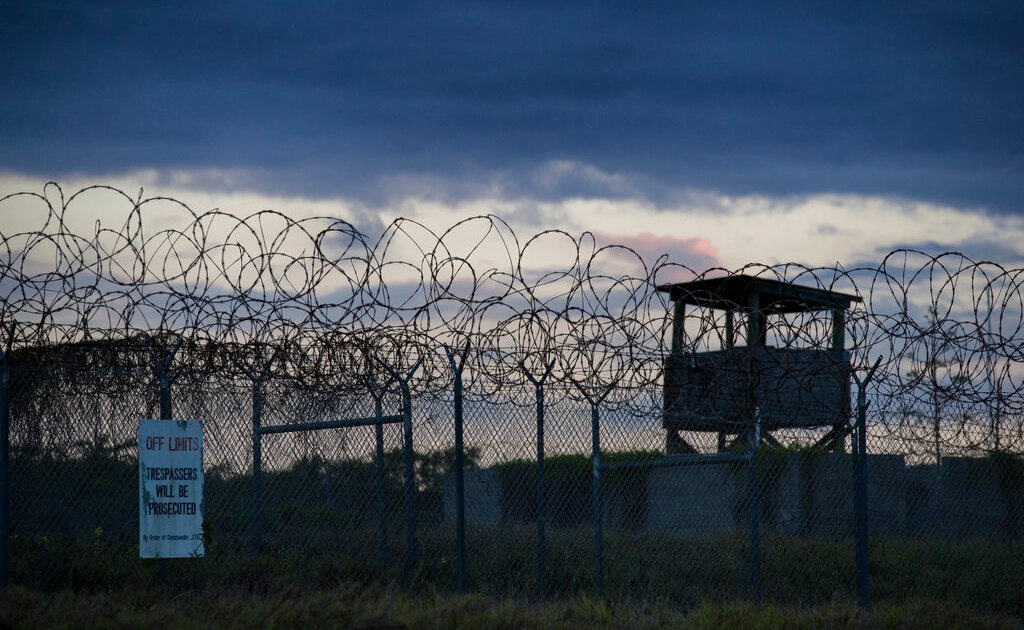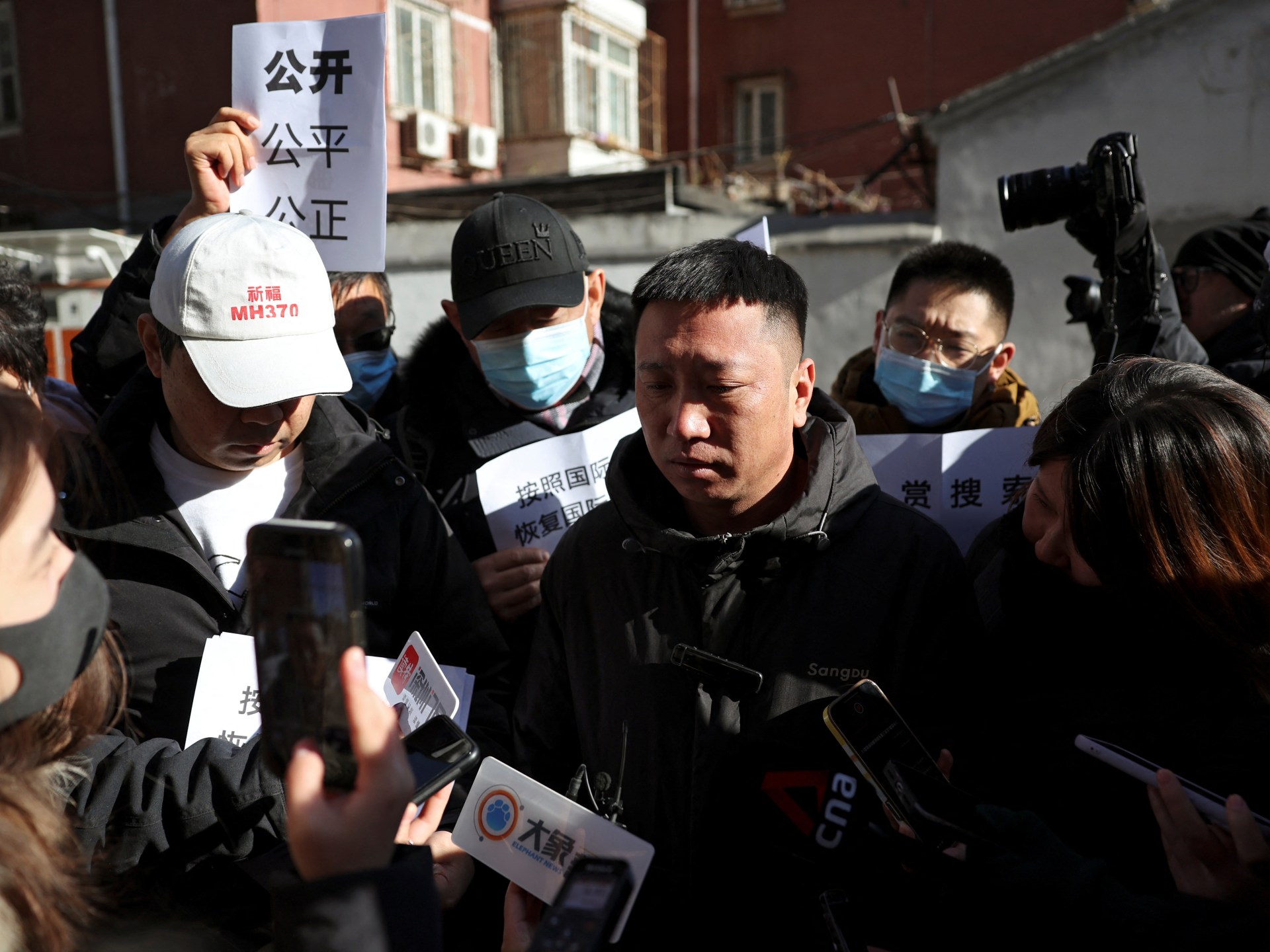Americas Summit: Biden pledges economic help, ‘ambitious actions’ | News
Joe Biden, the president of the United States, has kicked off a regional summit marred by discord over the guest list by announcing a proposed new economic partnership with Latin America and the Caribbean aimed at countering China’s growing clout.
Hosting the Summit of the Americas in Los Angeles on Wednesday, Biden sought to assure the assembled leaders about his administration’s commitment to the region despite nagging concerns that the US, at times, is still trying to dictate to its poorer southern neighbours.
The lineup of visiting heads of state and government in attendance was thinned down to 21 after Biden excluded Cuba, Venezuela and Nicaragua, prompting Mexican President Andres Manuel Lopez Obrador and several other leaders to stay away in protest.
Speaking at a gala opening ceremony, Biden said countries in the Americas have “to invest in making sure our trade is sustainable and responsible in creating supply chains that are more resilient, more secure and more sustainable”.
The Americas Partnership for Economic Prosperity “will help economies grow from the bottom up and the middle out, not the top down,” he said. “What’s true in the United States is true in every country. Trickle down economics does not work.”
Biden is seeking to present Latin American and Caribbean countries with an alternative to China that calls for increased US economic engagement, including more investment and building on existing trade deals.
Data shows that China has widened the gap with the US in trade terms in large parts of Latin America since Biden came into office in January 2021. A Reuters news agency analysis of UN trade data from 2015-2021 shows that outside of Mexico, the top US trade partner, China has overtaken Washington in Latin America and increased its advantage last year.
“The best antidote to China’s inroads in the region is to ensure that we are forwarding our own affirmative vision for the region economically,” a senior US official said ahead of the summit.
However, Biden’s partnership, which still appears to be a work in progress, stops short of offering tariff relief and, according to the official, will initially focus on “like-minded partners” that already have US trade accords.
Negotiations are expected to begin in early northern fall, the official added.
Diplomatic snubs
The Summit of the Americas in Los Angeles is the first in the US since the inaugural edition in 1994, and was conceived as a platform to showcase Washington’s leadership in reviving Latin American and Caribbean economies, and tackling record levels of irregular migration at the US-Mexico border.
But Biden’s agenda has been undermined by the partial boycott by leaders upset at Washington’s decision not to invite the three countries it says violate human rights and democratic values – Cuba, Venezuela and Nicaragua.
As a result, Biden found himself welcoming a larger-than-normal contingent of foreign ministers sitting in for their national leaders as the arriving dignitaries walked one-by-one up a red carpet flanked by a military honour guard.
Instead of Guatemala’s president, Biden shook hands with the foreign minister. He next greeted the minister of public affairs for El Salvador, the foreign minister for Honduras and then Mexico’s secretary of foreign affairs.
His administration, however, insists the summit can be successful despite the absence of several key leaders.
“Our region is large and diverse. We don’t always agree on everything,” Biden said in his speech. “But because we’re democracies, we work through our disagreements with mutual respect and dialogue.”
The gathering, he promised, would involve “bold ideas, ambitious actions” that would “demonstrate to our people the incredible power of democracies to deliver concrete benefits and make life better for everyone”.
The US president went on to preview a summit declaration on migration to be rolled out on Friday, calling it “a ground-breaking, integrated new approach” with shared responsibility across the hemisphere.
He provided few specifics, however, but said “we will enforce our borders through innovative, coordinated action with our regional partners”.
“Safe and orderly migration is good for all of our economies, including the United States. It can be a catalyst for sustainable growth. But all unlawful migration is not acceptable,” he added.
The US has been the most popular destination for asylum seekers since 2017, posing a challenge that has stumped Biden and his immediate predecessors, Donald Trump and Barack Obama.
But the US is far from alone. Colombia and neighbouring South American countries host millions who have fled Venezuela. Mexico fielded more than 130,000 asylum applications last year, many of them Haitians, which was triple from 2020.
Many Nicaraguans escape to Costa Rica, while displaced Venezuelans account for about one-sixth of the population of tiny Aruba.
“Countries are already having to do this, so rather than each country trying to sort this out and figure it out for themselves, what we’re doing is saying, ‘Let’s come together in a coherent way and construct a framework so we can all work together to make this situation more humane and more manageable,’” said Brian Nichols, assistant US secretary of state for Western Hemisphere affairs.
Some concrete measures may be announced to tackle the crisis during the Los Angeles summit, such as possible funding for development banks. Nichols said that discussing any specific initiatives would be premature, but officials have made clear that the “Los Angeles Declaration” will be largely aspirational.
There is widespread agreement that relief must target growth and stability for entire communities in which refugees and migrants live, not just refugees and migrants.
The agreement may also call for more pathways to legal status, mechanisms to reunite families, more efficient and humane border controls and improved information sharing, according to experts who have seen early drafts.
Other programmes Biden is expected to unveil in the coming days are a $300m food security financing initiative, a new Caribbean climate partnership that will help Caribbean countries access low-carbon energy sources, and a programme to train 500,000 health workers in the Americas over the next five years.
White House National Security Advisor Jake Sullivan told reporters ahead of the summit that the choice by some leaders not to attend reflected their own “idiosyncratic decisions” and that substantive work would still be accomplished.
He said the White House “will be putting specific dollars into producing tangible results”.
“When you tally all that up and look at the practical impact of what the summit deliverables from the United States will mean for the public sphere, it is significantly more impactful on the actual lives and livelihoods of the people of this region than the kinds of extractive projects that China has been invested in,” he added.




